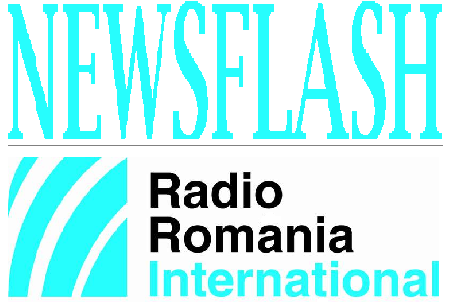October 4, 2013 UPDATE
Click here for a roundup of domestic and international news

Roxana Vasile, 04.10.2013, 20:43
Hearings in the special parliamentary committee over the controversial project of mining gold and silver in Rosia Montana (central Romania) continued on Friday. According to the Romanian academy, in its present form, the project isn’t acceptable, as the exploitation of the country’s resources has to be done in an intelligent manner. Representatives of the Romanian clergy have reaffirmed their concern over the irreversible, poisonous effect the cyanide-based exploitation could have over the environment. The representatives of the Canadian company in charge of the exploitation say the advantages for Romania will be numerous.
Romania and France boast a strategic bilateral partnership and the dialogue has to be a privileged one, Romanian foreign minister Titus Corlatean said in an interview to RFI France. The Romanian official has voiced disappointment at the confusion made in Paris, adding there is no connection between the safety of the exterior borders of the free-movement area Schengen and the Roma file. The dialogue has been tensioned between Romania and France for more than a week on the issue of the Roma people and the country’s accession to Schengen. The French politicians mentioned the possibility of delaying Romania’s accession to Schengen for fear that upon this France might be facing a massive wave of ethnics Roma from Romania, about whom they said they don’t want to get integrated into French society.
On Friday Romania became the first country to see the launch of the EU 20 billion-euro programme of Research, Development and Innovation, Horizon 2020. The event took place in the presence of the Romanian education minister Remus Pricopie and the European commissioner for research, Maire Geoghegan-Quinn, who also visited the construction site of the building, which is to host the world’s most powerful laser at Magurele, southern Romania. The European official said the programme would promote high expertise, innovation, economic and development and would lead to the creation of numerous jobs. Mrs. Quinn went on to say that Romania had a great research potential. The works on the world’s biggest laser installation are due to complete in 2014.
The first edition of the Radio Theatre Festival Grand Prix Nova, staged in Bucharest by Radio Romania, awarded its winners on Friday night. Out of the 56 productions from the 22 participant countries the first three places were occupied by productions from Germany, Britain and Austria. At the ‘short play’ section, the first prize went to a production from Croatia, followed by two productions from Romania and Belgium, respectively. Ovidiu Miculescu, chairman and CEO of the Romanian Radio Broadcasting Corporation highlighted the quality of the productions, also voicing hope that Radio Romania would continue to host the future editions of the aforementioned festival, aimed at giving an impetus to radio theatre productions. By means of this festival, Radio Romania joined the promoters and makers of first-class culture at international level, Ovidiu Miculescu went on to say. Held under the aegis of the International Radio and Television Union URTI, and the Romanian Culture Ministry, the festival, which also unfolded under the high patronage of Romanian heir princess Margareta was occasioned by the 85th anniversary, on November the 1st since the first radio broadcast in Romania. The first radio theatre play was aired in Romania in February 1929.




























